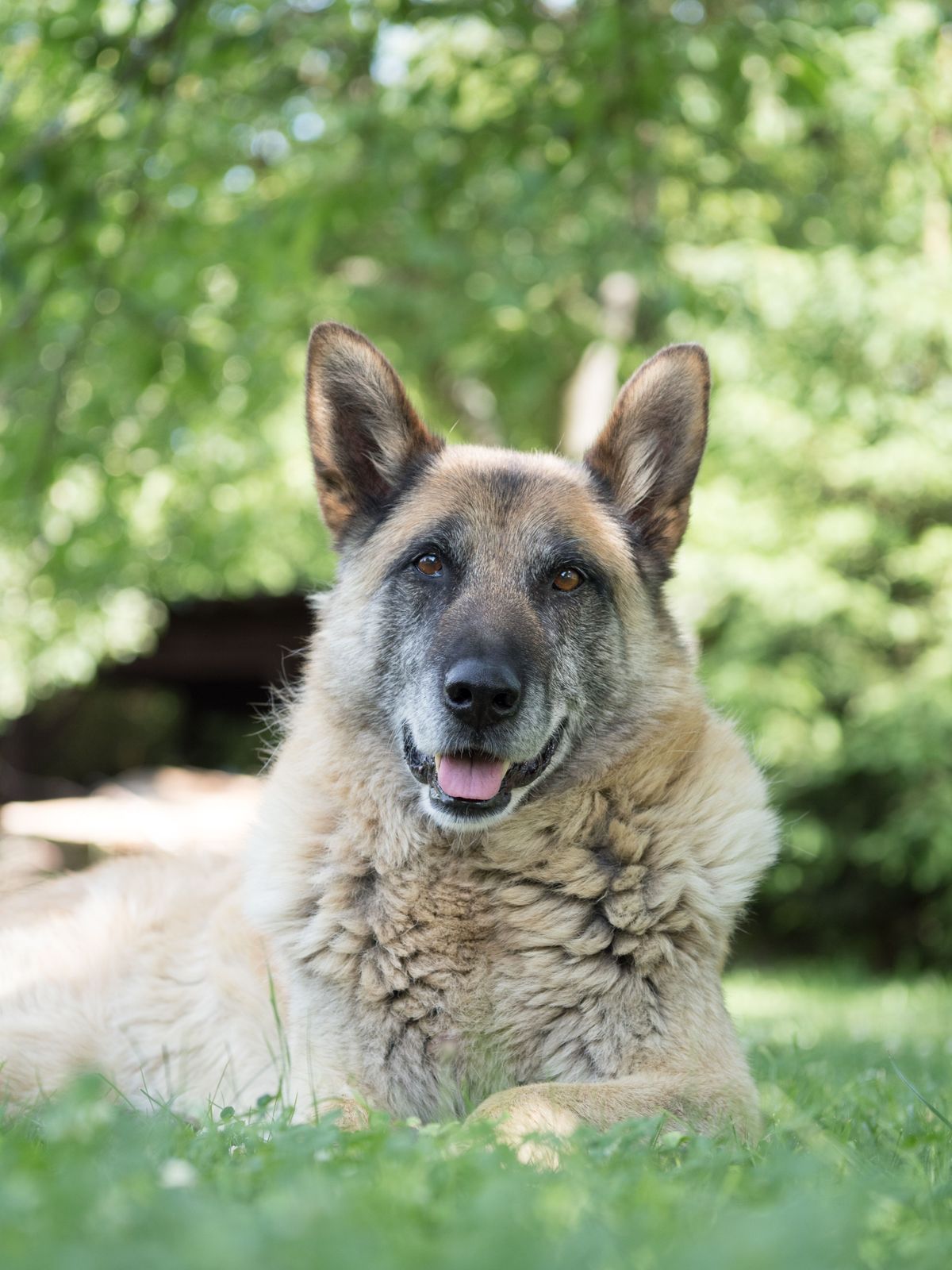7 reasons to adopt a senior pet

When talk of bringing a new pet into the family arises, most people have visions of sprightly puppies and purring kittens. When the big adoption day rolls around, folks head down to their local shelter and walk right by the older pets in search of a playful new family member who’s bright-eyed and bushy-tailed. Of course, it’s easy to think of a brand new puppy or kitten as a clean slate that you can mold, shape, and train, but the truth is older pets have plenty of life and love to offer the right family.
Already considered a senior by age 7, older cats and dogs are typically the last to be adopted at shelters. Senior dogs, for example, have a 25% adoption rate, and once cats hit the 18-month mark in a shelter, their chances for adoption drop drastically. In both cases, the unfortunate truth is that the longer these sweet creatures languish in a pet shelter, the more likely they are to be euthanized. People often say that when you adopt a senior pet, you’re saving a life. But those who adopt a senior pet often end up asking who saved who.
November is National Adopt A Senior Pet Month so in honour of the occasion, here are seven great reasons to adopt a senior pet.
Senior pets are already trained
The majority of senior pets tend to have basic obedience training, so they’re likely to be familiar with basic commands like "sit," "stay," or "lay down." Plus, older pets are more likely to be housebroken, or litterbox trained. If for some reason, the pet you adopted is not house trained, they’ll probably pick it up faster than their young counterparts. Older pets are easier to train in general because they're not bubbling with energy every minute of the day and they're more focused on the task at hand. If that weren't plenty, senior pets are likely to be familiar with and therefore cooperative with grooming routines.
What you see is what you get
Puppies and kittens are brand-new to the world, so not only are their personalities under construction, but they’re constantly growing, changing, and picking up new behaviors. And the truth is, where they’ll land in terms of temperament is anyone’s guess. But with senior pets, there are very few surprises. The temperament you see when you first meet them is the temperament you’ll get. So you’ll know pretty quickly how well the dog or cat you have your eye on will fit in with your lifestyle. Plus, senior pets have already grown to their full size. So there’s no guesswork when it comes to feeding, housing or grooming requirements.
Skip the stress and get to the good stuff
Anyone who’s ever raised a puppy or a kitten can tell you that while they’re awfully cute, those little scamps can be quite a handful. They’re new to the world and curious about everything. Puppies explore the world with their mouths, so they’ll likely chew on anything they can sink their teeth into) — plus, they’ll go through teething, just as kids do. When you couple itchy gums with a seemingly endless amount of energy, you have a recipe for disaster. An older pet who is a little long in the tooth will likely be far calmer and nowhere near as destructive so, you’ll never have to worry about your shoes or your furniture.
Senior pets are lower maintenance
In light of their penchant for chewing, destruction, and general mayhem, younger pets require plenty of supervision and a ton of exercise. Senior pets, however, don't necessarily need a watchful eye 24/7 because of their age and maturity. While they’ll no doubt be up for a run around the yard or a game of fetch at a moment’s notice, they’ll probably be just as happy to spend a lazy Sunday on the couch.
Mature pets settle in quickly
Most older dogs have probably spent their lives around people and other pets, so they know what it takes to be a part of a family and fit into the pack. Generally speaking, senior pets are more likely to be calm and less apt to ruffle any feathers.
You can teach an old dog new tricks
If teaching your dog how to give a high five is your idea of bonding, then you’ll be happy to know that, contrary to popular belief, you can teach an old dog new tricks. As a matter of fact, they’ll probably love you for it, as those play and training sessions tend to give them some much-needed mental stimulation. Plus, dogs are hard-wired to please their people, and senior pups are much more attentive and focused, so they’ll probably get the hang of things pretty quickly.
Senior pets have an attitude of gratitude
Older cats and dogs understand the difference between shelter life and family life, and when they’re rescued, they are pretty grateful for a second chance. No doubt they’ll likely show it with plenty of sweet licks and purr-filled pumps.
When you’re ready to add a new family member to your pack or your clowder please start by visiting your local animal shelter and remember that Vetster’s licensed veterinary professionals are available 24/7 should any health or behavioural issues pop up post-adoption.
Resources:
Canadian Humane Society: https://humanecanada.ca
ASPCA: https://www.aspca.org/adopt-pet/find-shelter
Four reasons to open your mind to older pets. ASPCA. (n.d.). Retrieved November 1, 2021, from https://www.aspca.org/blog/four-reasons-open-your-mind-older-pets.
What kinds of pets get adopted? Priceonomics. (n.d.). Retrieved November 1, 2021, from https://priceonomics.com/what-kinds-of-pets-get-adopted/.



